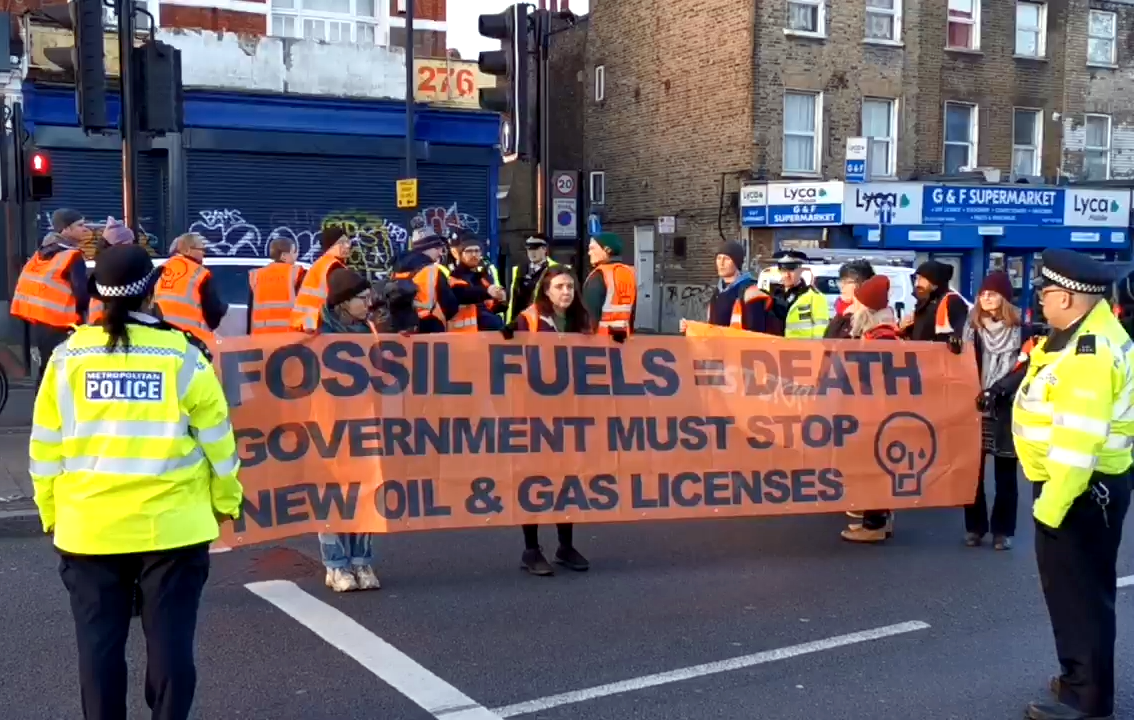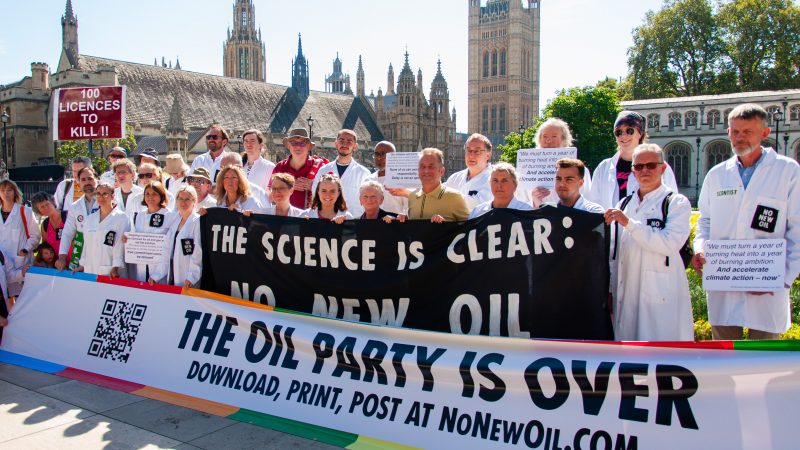‘Emissions Canyon’: World on Track for 2.9°C of Warming

Original article by OLIVIA ROSANE republished from Common Dreams under Creative Commons (CC BY-NC-ND 3.0).
Keeping the 1.5°C temperature goal alive “requires tearing out the poisoned root of the climate crisis: fossil fuels,” U.N. Secretary-General António Guterres said.
Nations’ current unconditional climate action plans under the Paris agreement would put the world on track for 2.9°C of warming by 2100, the United Nations Environment Program warned Monday.
The UNEP’s 2023 Emissions Gap Report, released ahead of next week’s U.N. Climate Change Conference (COP28) in the United Arab Emirates, finds that policymakers must slash greenhouse gas emissions by 28% by 2030 to limit warming to 2°C above preindustrial levels and 42% to halt warming at 1.5°C.
“The report shows that the emissions gap is more like an emissions canyon,” U.N. Secretary-General António Guterres said in a statement. “A canyon littered with broken promises, broken lives, and broken records. All of this is a failure of leadership, a betrayal of the vulnerable, and a massive missed opportunity.”
The annual Emissions Gap Report calculates the difference between climate-warming emissions under current policies and what needs to be achieved to limit global heating to “well below” 2°C and ideally 1.5°C. This year’s report highlighted 2023’s string of broken temperature records and extreme weather events: Scientists predict it’s on track to be the hottest year in 125,000 years.
At the same time, global greenhouse gas emissions rose by 1.2% between 2021 and 2022, hitting a record 57.4 gigatonnes of carbon dioxide equivalent (GtCO2e) last year.
“Humanity is breaking all the wrong records when it comes to climate change,” UNEP Executive Director Inger Andersen said in the report foreword.
“The 2023 edition of the Emissions Gap Report tells us that the world must change track, or we will be saying the same thing next year—and the year after, and the year after, like a broken record,” Andersen added.
Even the report’s full title expressed a sense of exasperation: Emissions Gap Report 2023: Broken Record—Temperatures hit new highs, yet world fails to cut emissions (again).
The report looked at both existing and promised policies, including countries’ Paris action pledges, known as nationally determined contributions (NDCs). It did find that national actions since the Paris agreement was negotiated in 2015 have made a difference. At the time, greenhouse gas emissions were projected to rise by 16% by 2030 and now they are on track to rise by 3% by the end of the decade.
But that progress is not nearly enough to avoid ever more extreme climate impacts. Currently implemented policies put the world on track for 3°C of warming by 2100, unconditional NDCs for 2.9°C, conditional NDCs for 2.5°C, and conditional NDCs combined with net-zero pledges give temperatures a 66% chance of topping out at 2°C. Under the last, most optimistic scenario, the world is left with a 14% chance of limiting warming to 1.5°C. However, net-zero pledges are not currently seen as reliable, since no Group of 20 country is on pace to reduce its emissions in line with this goal.
The report found that nations must cut their emissions by 14 GtCO2e by 2030 to reach 2°C and 22 GtCO2e to reach 1.5°C. The way this can be done is by phasing out fossil fuels as soon as possible.
“The only way to curtail this spiraling crisis is through wholesale changes to the global energy system that will sharply drive down all heat-trapping emissions.”
“We know it is still possible to make the 1.5°C limit a reality. And we know how to get there—we have roadmaps from the International Energy Agency and the IPCC [Intergovernmental Panel on Climate Change],” Guterres said. “It requires tearing out the poisoned root of the climate crisis: fossil fuels. And it demands a just, equitable renewables transition.”
The report comes as nations prepare to gather on November 30 for COP28, which will include the first global stocktake of their progress toward meeting the goals of the Paris agreement. This will lead to a new round of NDCs through 2035.
“Ambition in these NDCs must bring greenhouse gas emissions in 2035 to levels consistent with the 2°C and 1.5°C pathways. Stronger implementation in this decade will help to make this possible,” Andersen said in the foreword.
“The world needs to lift the needle out of the groove of insufficient ambition and action, and start setting new records on cutting emissions, green and just transitions, and climate finance—starting now,” Andersen added.
In response to the report, Rachel Cleetus, the policy director and a lead economist in the Climate and Energy Program at the Union of Concerned Scientists, also called for ambition at the upcoming climate talks.
“The only way to curtail this spiraling crisis is through wholesale changes to the global energy system that will sharply drive down all heat-trapping emissions,” Cleetus said. “At COP28, nations must heed these scientific truths by agreeing to a fast and fair phaseout of fossil fuels, ramping up renewable energy and energy efficiency, and significantly expanding climate finance commitments from wealthier countries for an equitable clean energy transition.”
Original article by OLIVIA ROSANE republished from Common Dreams under Creative Commons (CC BY-NC-ND 3.0).
